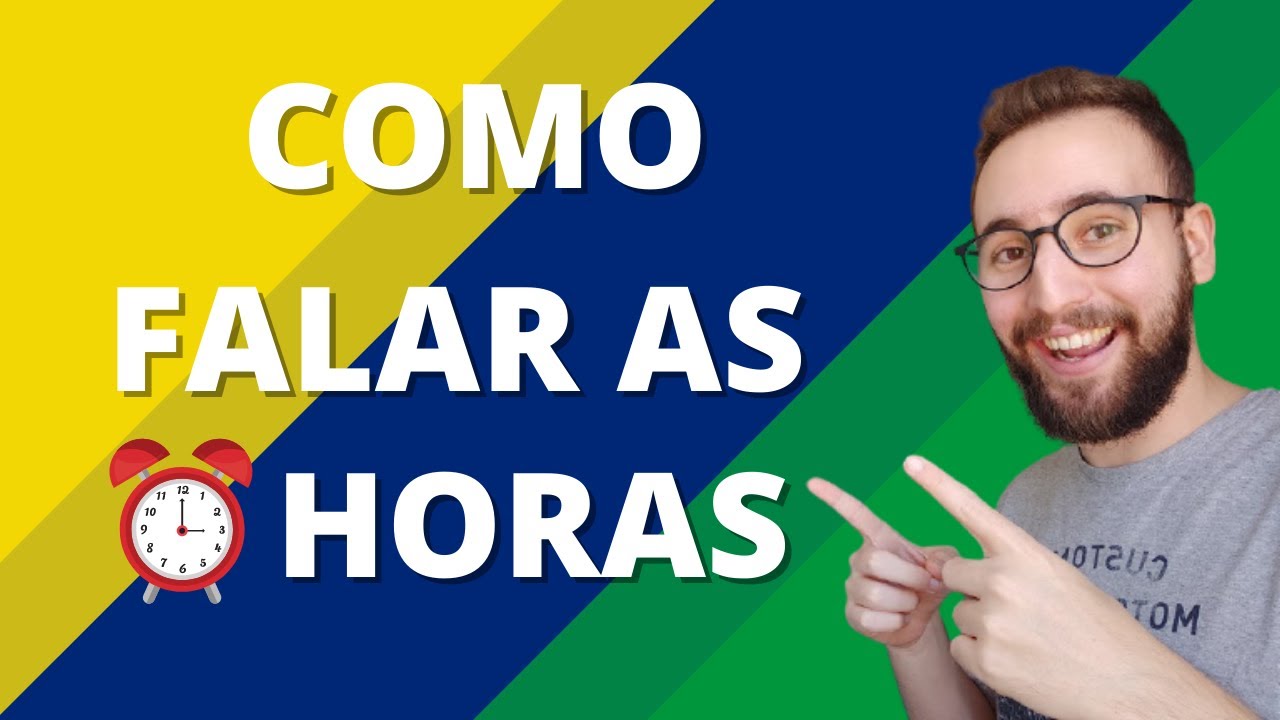Translation
Mixed Language
9% beginner
27% intermediate
64% undetermined
Excuse me, what time is it?
Now that you've learned how to talk about numbers, you can also talk about the time in Portuguese.
Don't forget to turn on the subtitles so you can understand all the explanations.
Well, the first thing I can say is that hours are feminine.
Therefore, we must use the feminine versions of the numbers "one" and "two", which are "uma" and "duas".
And there are a few ways to talk about time, but let's start with the simplest of all.
We can say a number, the word "and", and then the other number.
For example, this time we say "six and ten".
When we have thirty minutes, we have half an hour.
Therefore, this time we can say "half past nine".
When the next hour is just a few minutes away, we can talk a little differently.
For example, with this time, you can say "ten and forty-five" or you can say "fifteen to eleven",
because it's fifteen minutes till eleven o'clock.
Same thing with this time. You can say "six fifty" or "ten to seven".
And when an exact time arrives, we use the expression "sharp".
For example, with this time, we say "seven sharp".
In Brazil, in general, we use the twenty-four-hour system.
So the hours go from zero, which we call midnight, to twenty-three fifty-nine.
To twelve o'clock, we call it midday.
And we can say, for example, "quarter to midday" or "half-past midnight", without any problem.
After noon we have "thirteen o'clock", "fourteen o'clock", "fifteen o'clock" and so on until twenty-three o'clock.
If you talk using the twelve-hour system, people will understand you as well, but you have to be a little more specific.
For example, you can say "eight in the morning" or "eight in the evening"; "six in the morning", "six in the afternoon".
So if someone asks "what time is it?" you can answer "it is" and the current time.
And finally, when we're going to talk about something that happens at a specific time, we need to use contractions.
We're going to use the contraction "às" to talk about hours in general.
For example, "the match is at four o'clock", "the event will be at eight o'clock".
When we talk about midday, we use the contraction "ao": "I have lunch at midday".
When we talk about midnight, we use the crase.
For example: "I slept at midnight".
And when we talk about an hour, we simply use the preposition "à":
"I'm leaving at one in the afternoon."
Was that clear?
And that's it! If you liked this video, click the like button to help me make more videos like this one.
and don't forget to subscribe to the channel so you don't miss the next videos.
Here on the screen, I'm going to leave two more videos for you to continue learning Portuguese.
Que horas são, por favor?
time nós falamos "seis e dez".
time nós podemos dizer "nove e meia".
time você pode falar "dez e quarenta e cinco" ou você pode falar "quinze para as onze",
time Você pode dizer "seis e cinquenta" ou "dez para as sete".
time exato, nós usamos a expressão "em ponto".
time nós falamos "sete em ponto".
time das doze, nós chamamos de meio-dia.
time atual.
time específico, nós precisamos utilizar as contractions
crasis
Start Lesson






